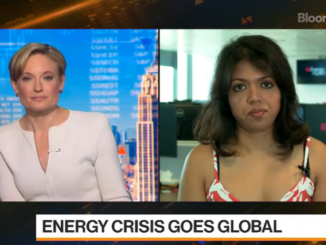
January 2, 2024
Data source: Bloomberg, L.P.
Note: Spot prices are in nominal terms and are not adjusted for inflation.
The price of Brent crude oil averaged $83 per barrel (b) in 2023, down from $101/b in 2022, a difference of $19/b after rounding. Global markets adjusted to new trade dynamics, with crude oil from Russia finding destinations outside the EU, and global crude oil demand fell short of expectations. Those dynamics offset the impacts from OPEC+ crude oil supply curbs.
In the first half of 2023, crude oil prices fluctuated following the EU import ban on Russia’s crude oil and products, several interest rate hikes among global central banks, and inflation and recession concerns. However, Brent crude oil prices in the first half of 2023 were significantly less volatile than in 2022, when prices reached multi-year highs as a result of Russia’s full-scale invasion of Ukraine. In the second half of 2023, geopolitical tensions and concerns around crude oil demand resulted in more price fluctuations. Brent crude oil prices ended the year at $78/b, $4 below the start of 2023.
On June 4, 2023, OPEC+ members announced they would extend crude oil production cuts through the end of 2024. The cuts had been set to expire at the end of 2023. Following the June 4 meeting, Saudi Arabia announced an additional voluntary oil production cut of 1.0 million barrels per day (b/d) for July (with the option to extend) in addition to the OPEC+ cuts.
In early September, Saudi Arabia announced it would extend the country’s voluntary production cuts through the end of 2023. U.S. commercial crude oil inventories fell and on September 29, 2023 were at the lowest point since December 2, 2022. The limited supply provided upward pressure on crude oil prices, and on September 28, the price of Brent reached its high for the year, at $98/b.
After declining from the September highs, crude oil prices increased again in early October after the Israel-Hamas conflict began; the price of Brent reached $91/b on October 9.
As fears of a wider conflict and supply disruptions eased, concerns around crude oil demand once again drove crude oil prices down. By the end of October, the price of Brent was down to $89/b, nearly equal to the price on October 6. The price of Brent continued decreasing, settling at $74/b on December 12.
In mid-December, oil prices began increasing again as geopolitical tensions rose amid multiple attacks related to the Israel-Hamas conflict on shipping vessels in the Red Sea. The attacks led to sharp increases in insurance rates to transit the Red Sea, and shippers, including BP, began to reroute ships around the tip of Africa. The longer voyages and increased geopolitical risk pushed the price of Brent up to $78/b on December 29 (the last trading day of the year).
Principal contributor: Matthew French
The price of Brent crude oil averaged $83 per barrel (b) in 2023, down from $101/b in 2022, a difference of $19/b after rounding. Global markets adjusted to new trade dynamics, with crude oil from Russia finding destinations outside the EU, and global crude oil demand fell short of expectations. Those dynamics offset the impacts from OPEC+ crude oil supply curbs.



